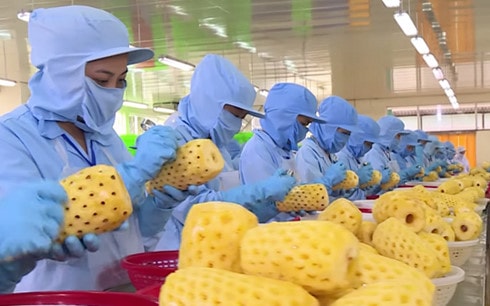Unsafe food - difficult to compete in TPP
Food exports need to focus on raw materials with stable quality in terms of technology and food hygiene and safety.
“If food and food products are not controlled at the input level and do not ensure food safety and hygiene, businesses cannot compete with countries in the TPP,” many experts affirmed at the workshop “Trans-Pacific Partnership Agreement – Opportunities and challenges for the food processing industry” held in Ho Chi Minh City on the afternoon of August 8.
 |
| Most Vietnamese export companies have to go through foreign distributors. (Illustration photo: KT) |
According to assessments, the TPP will not have much impact on the export of Vietnam's main food products. Products that can benefit from reduced import tariffs in the TPP bloc include rice, cassava, dairy products, and confectionery.
Currently, most Vietnamese export companies that want to sell food must go through foreign distributors, so if taxes are removed or reduced, Vietnamese businesses will mainly sell more goods and will hardly benefit directly.
According to Mr. Duong Nhu Hung, Vice Principal of Ho Chi Minh City University of Economics and Law, the biggest challenge currently in food export is controlling input materials, meeting technical standards, food hygiene and safety, and stable quality.
“Enterprises must aim for sustainable relationships. Importers buy raw materials from domestic enterprises, but they control inputs such as farming processes, care, nutrition, pesticides, etc. Therefore, if enterprises and manufacturers do not strictly control inputs, exported products will have difficulty sustaining, not to mention being negatively impacted,” Mr. Hung commented./.
According to VOV

